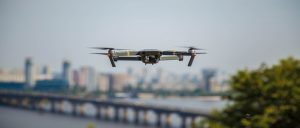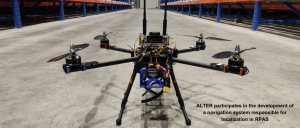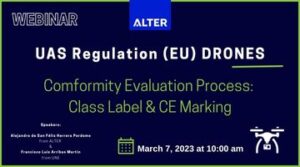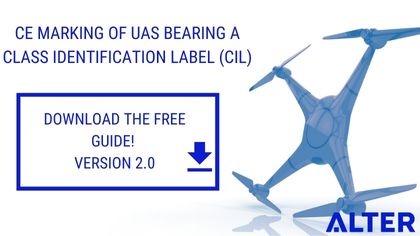Pilots Regulation Transition From the Local Decree to the European Regulatory Framework
Validity of remote pilot certificates
UAS to be operated in the ‘open category and not belonging to one of the classes C0, C1, C2, C3, or C4 laid down in Commission Delegated Regulation (EU) 2019/945 may continue to be operated until 1 January 2023 under the following conditions:
(a) If the take-off mass of the unmanned aircraft is less than 500 g, subcategory A1 operation, by a remote pilot who is recommended to be familiar with the manufacturer’s user manual or, in the absence thereof, an equivalent document developed by the UAS operator itself;
(b) If the take-off mass of the unmanned aircraft is less than 2 kg, and it is operated at a minimum horizontal distance of 50 m from persons, by remote pilots with a level of proficiency at least equivalent to that corresponding to subcategory A2, deemed acceptable to have a basic or advanced certificate following Law 18/2014 or Royal Decree 1036/2017 and to complete a practical self-training statement; and
(c) If the take-off mass of the unmanned aircraft is less than 25 kg, and the operation is conducted in subcategory A3, by remote pilots with a level of proficiency at least equivalent to that of subcategories A1 and A3, a basic or advanced certificate according to Law 18/2014 or to Royal Decree 1036/2017 being considered acceptable.
From 31 December 2020 until 1 January 2022, remote pilots who have not adapted to the new remote pilot training scheme and who will operate in the ‘open’ category or the ‘specific’ category under a national standard scenario (‘STS-ES’) shall:
(a) Demonstrate that they have the necessary theoretical knowledge being or having been holders of:
- The basic or advanced certificate issued following Law 18/2014 or Royal Decree 1036/2017;
- any pilot’s license, including the microlight pilot’s license, issued by the regulations in force and not having been deprived of the same under a sanctioning procedure;
- a certificate of having passed the examinations for the theoretical knowledge required for a pilot license under the European Union Aviation Safety Agency («EASA») issued by an Approved Training Organisation («ATO,» Approved Training Organisation») issued by EASA; EASA or the competent authority of a Member State, or, in the case of the Spanish microlight license, an individual certificate of APTITUDE issued by EASA after completion of the relevant official theoretical knowledge examination; o
- a military manned aviation pilot license in the service of the Spanish Armed Forces and the Guardia Civil.
(b) demonstrate that they have the necessary practical knowledge by holding or having held a practical training certificate issued per Law 18/2014 or Royal Decree 1036/2017
Conversion of remote pilot certificates to remote pilot certificates of competency.
Note: The certificate conversion process is not yet available. As soon as possible, the certificate conversion process will be published in this section and the information necessary to carry out the process correctly.
What does an operator have to do now?
Operators must use this transition period to adapt their operational procedures to the new Regulation. After the transition period ends on the first day of 2022 operators who do not comply with this Regulation will start having legal problems.
To avoid this kind of problems, you, operator should start preparing the necessary documentation now to keep growing and doing what you like. If you need support, Alter Technology will be by your side to guide you in each step you take.
Until 1 January 2022, EASA will facilitate the conversion of remote pilot certificates to remote pilot certificates of competency.
The conversion of certificates shall be performed as follows:
a) The basic or advanced certificate issued following Law 18/2014, as well as the means of justification of theoretical knowledge indicated in Article 34 of Royal Decree 1036/2017, together with an online course of adaptation to European regulations organized by AESA, shall be considered equivalent to:
- the proof of passing the online training and examination of theoretical knowledge corresponding to the ‘open’ category, subcategories A1 and A3 of UAS operations.
- The remote pilot attestation of competence corresponding to the ‘open’ category, subcategory A2 UAS operations.
b) The basic or advanced certificates together with the practical certificates issued by Royal Decree 1036/2017 and law 18/2014, together with an online course of adaptation to European regulations organized by EASA, shall be considered equivalent to the certificate of remote pilot theoretical knowledge and practical skills for operations covered by the corresponding standard scenario (‘STS’) in the ‘specific’ category of UAS operations.
Certificates issued by the provisions of RD 1036/2017, dated after 31/12/2020, shall not be converted to EU certificates, except those issued for NON-EASA activities.



